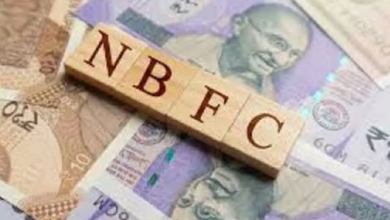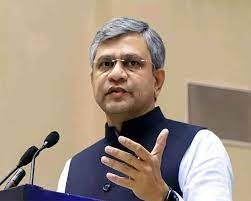Most likely, Airtel will lead the next spectrum auction
Analysts predict that in the forthcoming spectrum auction in May, Bharti Airtel, the second-biggest telecom operator in India, would spend the most of any operator, displacing Jio and Vodafone Idea.

This is due to the fact that, according to experts, Airtel is anticipated to acquire more spectrum in the 800, 900, 1800, 2100, and 2300 MHz bands in addition to the spectrum that is up for renewal. According to experts, this would not only help Airtel increase its market share and foothold in rural regions, but it will also facilitate the company’s transition to 5G standalone architecture without the need to wait for the more costly 700 MHz band or the 600 MHz band. Furthermore, Jio is anticipated to participate to a limited extent since it has previously purchased a significant portion of 5G spectrum in previous spectrum auctions and does not currently have any spectrum up for renewal.
In six circles, Bharti Airtel has received spectrum renewals totaling 42 MHz in the 1800 MHz and 900 MHz bands. This will need investing Rs 3,800 crore at reserve pricing. We still anticipate Bharti to renew the majority of its spectrum in these areas to preserve or grow its market share, even if it has de-risked its operations by obtaining spectrum in the 900/1800 MHz bands in prior auctions, according to a report from Jefferies.
As to Jefferies, Airtel may also place a bid in certain areas to enhance its ownership in the 800MHz/1800MHz bands to 10–15 MHz and in the 2300MHz band to 40 MHz. This may result in an auction expenditure cap of Rs 12,300 crore.
Twenty MHz in the 800 MHz band, 156 MHz in the 900 MHz band, 328 MHz in the 1800 MHz band, 215 MHz in the 2100 MHz band, 790 MHz in the 3300 MHz band, and 17,600 MHz in the 26 GHz band make up Airtel’s current total of 22,027 MHz of spectrum.
According to Kotak Institutional Equities, Airtel may submit a proposal for sub-GHz spectrum in West Bengal, Andhra Pradesh, Gujarat, Karnataka, Rajasthan, Tamil Nadu, Kerala, and Madhya Pradesh (to reach 5–10 MHz in the 900 band).
Recently, Airtel has discussed testing the freestanding architecture (SA), which operates independently of any underlying layer like a 4G network, in an effort to fully use the promise of 5G. Experts suggested that the corporation wait for the 600 MHz band to open in order to save money and time, or it may use the 800 and 900 MHz bands as a viable spectrum plan to get spectrum appropriate for 5G SA.
“Bharti is able to acquire a 10 MHz block that is appropriate for 5G SA installations in almost all locations thanks to this technique.Bharti would ultimately spend only Rs 26,159 crore carrying out this strategy, much less than Rs 39,070 crore should they choose to purchase 10 MHz of the 600/700 MHz spectrum, according to Parag Kar, a former vice-president of government relations, India and South Asia at Qualcomm.
According to telecom industry analyst Kar, Airtel may bid on both the 1800 and 2100 MHz frequencies in the next spectrum auction for the circles of Delhi, Gujarat, Haryana, Kerala, and Mumbai, where the company’s position may be less favorable for the switch to 5G SA.
Kar said, “The outlined expenditure is a strategic investment into Bharti’s long-term infrastructure, poised to enhance network performance, competitiveness, customer experience, and service innovation, even though the financial implications are significant.”
In summary, to effectively compete with Jio and provide high-quality 5G, Airtel will need to purchase spectrum valued at around Rs 32,500 crore.
It is important to note that analyst forecasts differ from Airtel’s previous advice about its spectrum purchase plan. Gopal Vittal, the managing director and CEO of Bharti Airtel, said in November of last year that the business would spend a lot less on next spectrum auctions since it does not need more airwaves.
“We estimate that Bharti Airtel would have an additional spectrum obligation of Rs 5,100 crore in FY25. However, given the strategy surrounding doubling down on rural roll outs and the end number being bigger than what we had estimated, we do not rule out the prospect of bidding for further circles/bands,” Morgan Stanley said.
Jio, in contrast, has around 26,772 MHz of spectrum overall. It contains 10 MHz in each of the 22 circles of the 220 MHz 700 MHz band, 225 MHz 800 MHz band, 281 MHz 1800 MHz band, 880 MHz 2300 MHz band, 2440 MHz 3300 MHz band, and 22000 MHz 26 GHz band exclusively. In contrast, Vodafone Idea has a total of around 8,000 MHz of spectrum.
According to Jefferies, Reliance Jio may enhance its spectrum ownership in certain circles in the 800MHz band, which might result in extra spending of Rs 3,700 crore. However, the company is not anticipated to have restricted participation because to its large expenditures in the previous 5G auctions.
Even yet, Vodafone Idea still possesses 12 MHz of spectrum in two rings at 1800 MHz and 900 MHz that is available for renewal. This will need investing Rs 1,500 crore at reserve pricing. Analysts speculate that the business could choose to renew spectrum in the 900 MHz band, particularly in the West Bengal circle, rather than in the 1800 MHz band, given it has enough of spectrum in renewal circles in that band.
According to Jefferies, this would result in a reduction in spending from Rs 1,500 crore for all renewals to Rs 200 crore for only the 900 MHz band.
The Department of Telecommunications (DoT) announced a notice inviting applications (NIA) last week. This is the start date for the next spectrum auction, which will see airwaves worth over Rs 96,317.65 crore across bands put up for sale.
In general, experts said that there may not be much more demand for 5G-related frequency bands since the 5G rollouts are complete and capacity utilisation is currently low. Officials said that the government isn’t even anticipating to make more than Rs 10,000 crore from the auctions.







